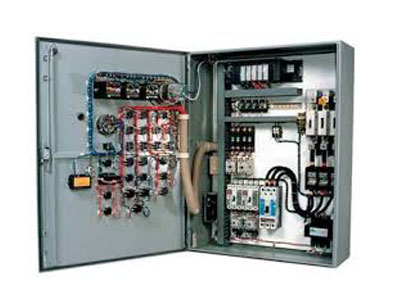What Is The Purpose Of MCC Panels?
Key Takeaway
The purpose of an MCC panel (Motor Control Center panel) is to control and manage electric motors in a centralized way for industrial or commercial use. These panels ensure safe and efficient operation of motors and related equipment.
Components of MCC panels include motor starters, fuses or circuit breakers, overload relays, power contactors, timers, isolators, bus bars, transformers, and limit switches. MCC panels can be classified based on voltage: low-voltage (230V to 1000V) and high-voltage (1000V to 15kV). They are commonly installed in mechanical or electrical rooms to optimize space and streamline motor control operations.
Centralized Motor Management
One of the primary purposes of MCC panels is to provide centralized motor management. By housing motor starters, variable frequency drives (VFDs), circuit breakers, and other essential components in one location, MCC panels simplify the monitoring and control of motors throughout an operation. This centralized setup makes it easier for operators to manage multiple motor-driven systems from a single control panel, leading to enhanced coordination and better oversight.
Centralized motor management streamlines the process of starting, stopping, and reversing motors, allowing operators to execute commands efficiently. This is especially valuable in complex manufacturing lines where motors of various types and sizes work in tandem. A well-organized MCC ensures that operators can access and control each motor efficiently without having to navigate a maze of scattered components.

Enhancing Operational Efficiency
MCC panels contribute significantly to the operational efficiency of an industrial plant. By incorporating advanced features like programmable logic controllers (PLCs) and remote monitoring capabilities, MCCs enable automation and precise control over motor functions. This automation minimizes the need for manual intervention, reducing the chances of errors and increasing the overall productivity of the operation.
Moreover, MCCs equipped with energy-saving technologies like VFDs allow operators to regulate the speed of motors based on operational demands, leading to reduced energy consumption and cost savings. These panels also support diagnostic features that help in monitoring the health and performance of motors, identifying potential issues before they lead to failures. This proactive approach minimizes downtime and ensures the continuous flow of production, thus boosting operational efficiency.
Ensuring Safety and Protection
Safety is paramount in industrial settings, and MCC panels play an essential role in ensuring a safe working environment. They are designed with built-in safety mechanisms such as circuit breakers, overload relays, and fuses, which protect motors and the overall control system from electrical faults, short circuits, and overloads. These protective features help prevent damage to equipment and reduce the risk of fire hazards, providing a secure operation for both equipment and personnel.
MCC panels also offer isolation features that allow maintenance personnel to work on the system safely without affecting the entire network. This helps to avoid accidental start-ups and ensures that operators can perform repairs and inspections without risking their safety. In addition, modern MCCs often come with emergency stop buttons and remote shutdown capabilities to quickly disable the system in case of an emergency, further enhancing the safety of industrial operations.
Supporting Scalability and Expansion
MCC panels are designed to be adaptable, supporting the growth and scalability of industrial operations. As businesses expand and add new motor-driven equipment, the ability to integrate additional components into the existing MCC system becomes crucial. Modern MCCs are built with modular construction, which allows for easy scalability without major overhauls.
The modular nature of MCCs means that new motor starters, VFDs, or circuit protection units can be added as needed. This flexibility helps companies meet the evolving demands of their production processes without having to replace the entire system. By supporting scalability, MCC panels ensure that an industrial operation can grow efficiently while maintaining optimal control and management of its motor systems.
Reducing Downtime in Industrial Operations
One of the most critical aspects of industrial operations is minimizing downtime, as it can lead to significant productivity losses and financial costs. MCC panels contribute to reducing downtime through their advanced diagnostic and monitoring features. Real-time data from the system can alert operators to potential issues before they escalate into serious problems that could stop production.
Additionally, many MCCs include features like remote monitoring, which allows engineers to access data and perform diagnostics from a remote location. This remote capability helps identify issues faster and reduces the need for on-site troubleshooting, leading to quicker repair times. The integration of predictive maintenance technology in modern MCCs also aids in anticipating failures and performing necessary maintenance tasks before malfunctions occur. As a result, industries experience smoother, more continuous operations with minimal interruptions.
Conclusion
MCC panels serve a fundamental purpose in industrial and commercial settings by centralizing motor control, enhancing efficiency, ensuring safety, supporting future scalability, and minimizing downtime. These panels are essential for maintaining smooth and productive operations, enabling industries to manage complex motor-driven systems effectively. The versatility and advanced features of modern MCCs make them a cornerstone of industrial automation, allowing companies to operate with maximum efficiency, safety, and reliability.

